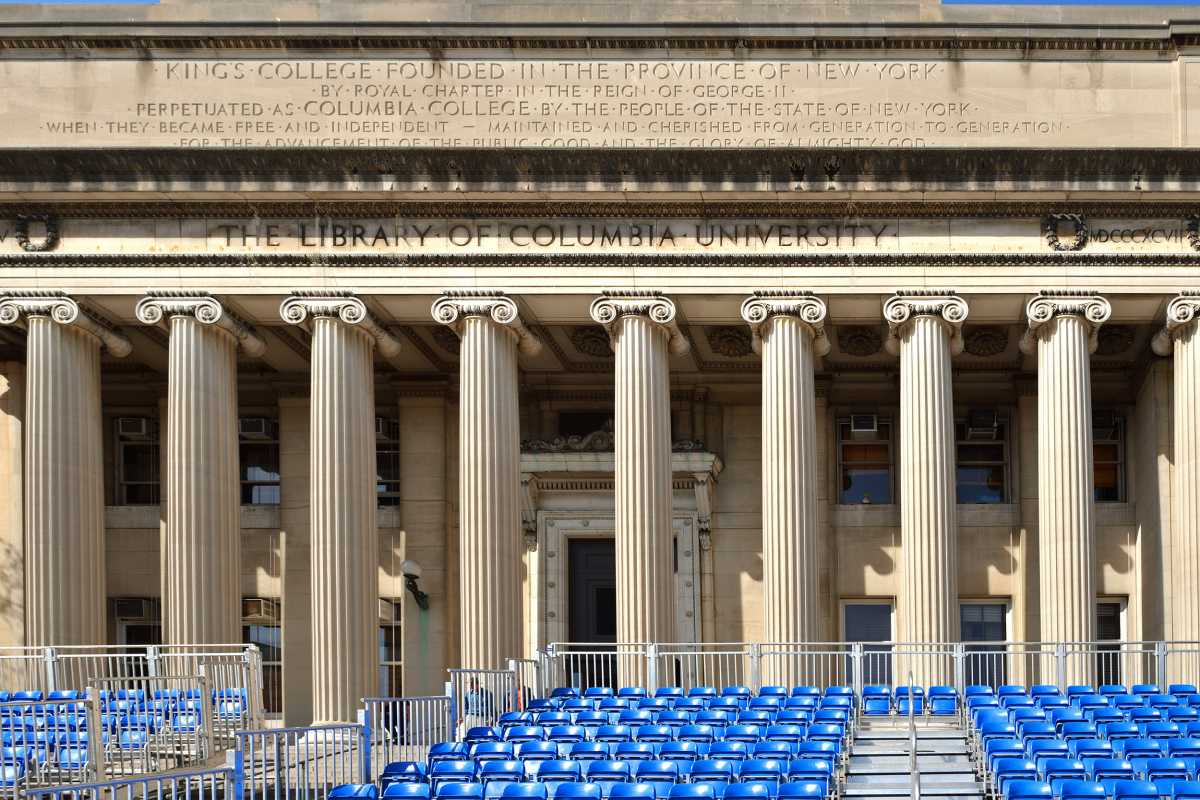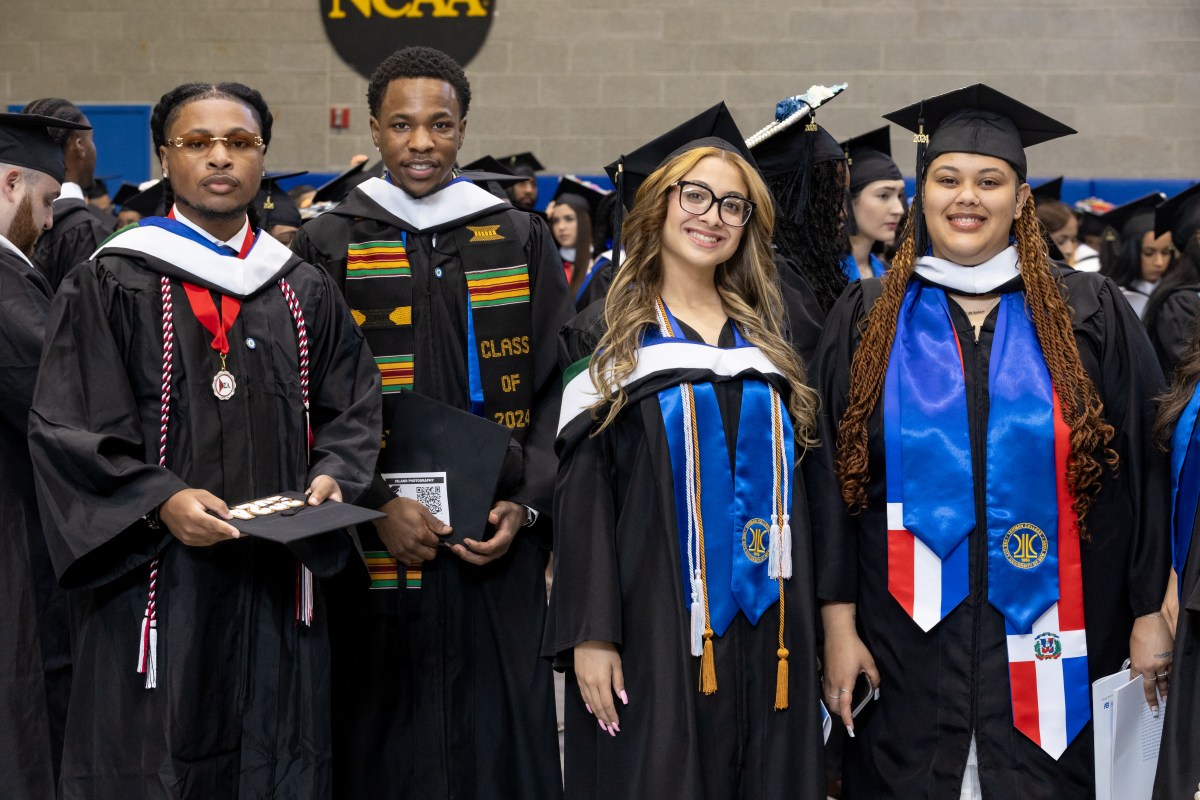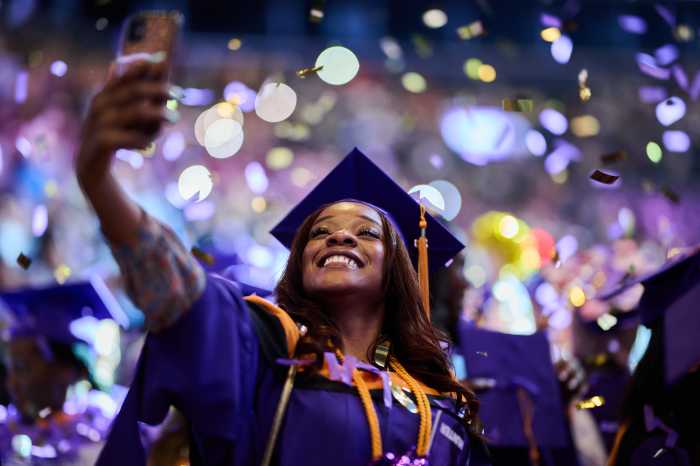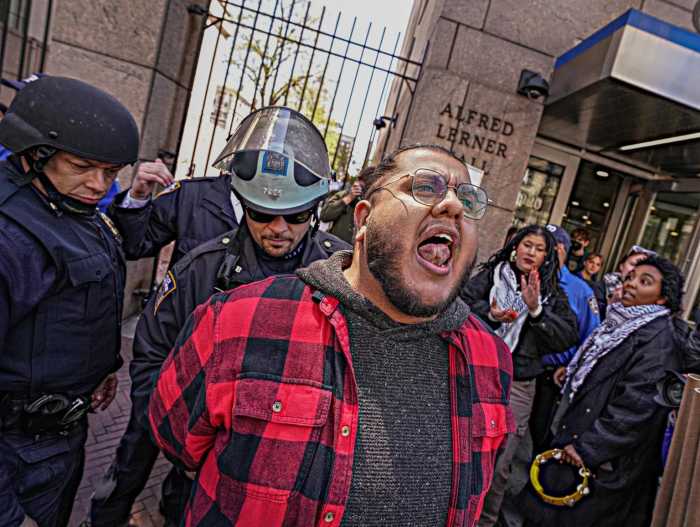Every May at commencements across America, college campuses ordinarily brim with pomp and excitement as graduating seniors get ready to launch into the world, proud parents bask in their children’s life milestones, and universities honor remarkable leaders who offer sage advice in speeches to young people ready to make their mark.
Consider Hollywood producer Shonda Rhimes, who cautioned Dartmouth students that “dreams do not come true just because you dream them.” Author George Saunders encouraged students at Syracuse University to “err in the direction of kindness.” Apple co-founder Steve Jobs once implored students at Stanford to recognize that “time is limited, so don’t waste it living someone else’s life.
Sadly, such wisdom and celebrations may be silenced or muted this year. Already, the University of Southern California called off its main-stage graduation and canceled the speech of a Muslim valedictorian, citing concerns over safety. No doubt, we will see other university commencements interrupted by unrest gripping campuses. And this college class of 2024 is the same group whose high school graduation was disrupted or canceled because of the COVID pandemic.
Our university leaders must not allow the best of America to be hijacked by the actions of a vocal minority of student protesters and outside agitators, many of whom are masked to conceal their identities.
President Joe Biden said it Friday at the White House: “Dissent is essential for democracy, but dissent must never lead to disorder.”
“There’s the right to protest, but not the right to cause chaos,” Biden said. “People have the right to get an education, the right to get a degree, the right to walk across campus safely without fear of being attacked.”
Instead, we are witnessing too many examples of uncontrolled hatred in the form of clear and outspoken antisemitism, sometimes egged on by outsiders, on college campuses such as Columbia and NYU, accompanied by threatening confrontations and escalating calls for violence.
When extremist protesters like one self-proclaimed Columbia student “leader” declare that “Zionists don’t deserve to live” or prevent Jewish students from freely moving around a campus, that is no longer civil dissent. Some Jewish students are being harassed as though they are responsible for the Israeli government’s policy. When protesters use radical rhetoric calling for freedom “from the river to the sea” or chanting “no two-state solution, we want 1948” – a reference to the period before the establishment of Israel – those students are knowingly or unknowingly buying into dangerous antisemitic and anti-Israeli tropes. No wonder Jewish students feel intimidated and unsafe on campuses today.
The damage done to campus life by extremist protesters is evident in a recent survey of 5,000 students across America by the University of Chicago’s Project on Security and Threats that found a majority of Jewish and Muslim students on campuses feared for their physical safety.
It’s one thing to promote humanitarian aid and support for Palestinians. And it is understandable to empathize, as some students do, with innocent Palestinians in Gaza who are suffering, while at the same time recognizing that Israel endured the most barbaric attacks in its history on Oct. 7 and has a right to defend its citizens.
But other protesters are implicitly – or even overtly – supporting Hamas, the terrorist group that perpetrated these crimes. Hamas is focused single-mindedly on destroying Israel, according to its charter, and has no interest in the well-being of Palestinians.
Many of these students, through ignorance or apathy, have been silent in the face of other tragedies elsewhere, many of which affect Muslim populations. Where’s the outrage over the starvation, displacement and genocide of millions in Sudan? Where were the campus encampments as Syrian President Bashar Assad massacred half a million Syrians and Palestinians? Where are campus protests over 1 million Uyghur Muslims being repressed in China? Or Russia’s horrific invasion of Ukraine and kidnapping of children and sexual violence? Why haven’t more protests demanded that Hamas release Israeli hostages, held captive for nearly seven months?
Too many university leaders have allowed students and faculty to spew hatred of Jews without consequence or condemnation. With its commencement less than two weeks away, Columbia asked New York police to remove protesters barricaded in a university building, clear the tent encampment on its main campus and stay onsite through the end of its commencement weekend. We will see if that is enough to restore civility.
Mayor Eric Adams’ administration released statistics this week showing that outside agitators are getting involved in campus protests, which risks further extremism and violence. Nearly half of the people arrested in Tuesday night’s raids at Columbia and City College of New York were not students or faculty.
The future of our country is tied to what happens on university campuses. Let’s hope college administrators will demonstrate the leadership to stop protesters from hijacking their campuses, disrupting education and interfering with graduations. The best of America deserves to be recognized at commencement weekends across the country as a beacon to the world.
Eric J. Gertler is Executive Chairman and CEO of U.S. News & World Report. Reprinted with permission.
Read more: Op-ed highlights progress on NYC subway crime and safety.



































